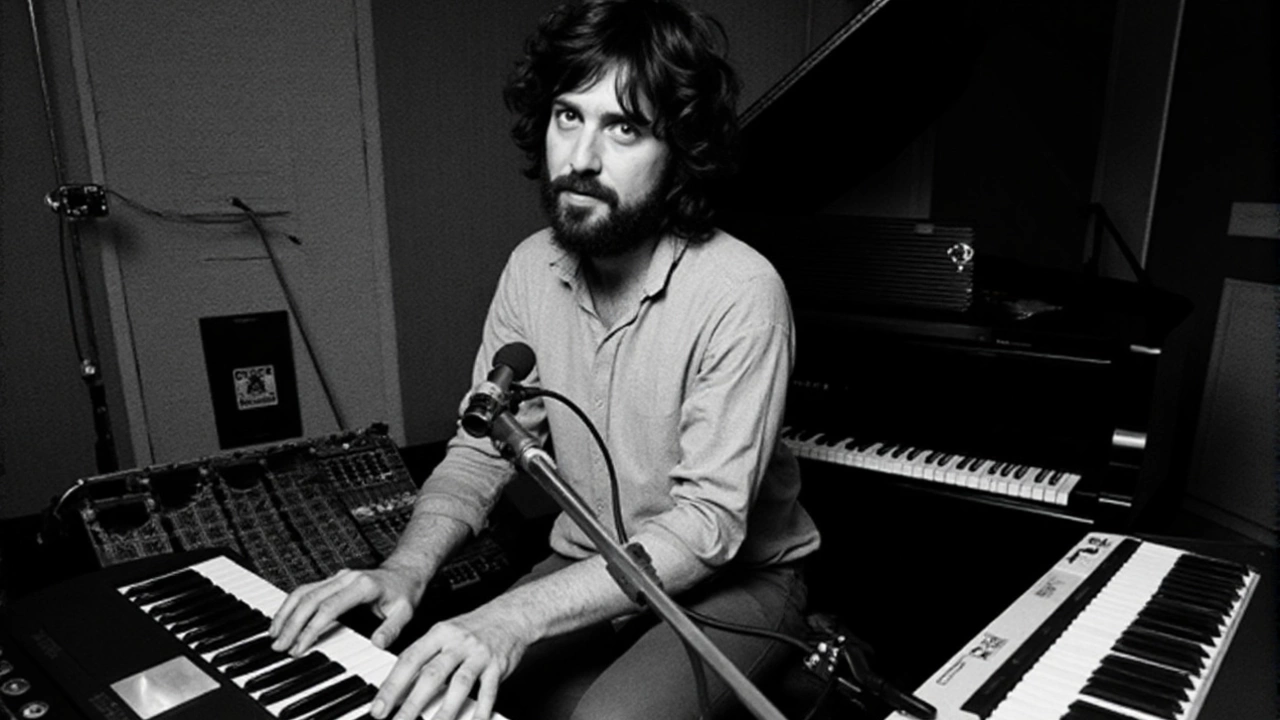The baritone behind Supertramp’s biggest moments falls silent
Rick Davies, the co-founder, lead singer, and keyboardist of Supertramp, died on Saturday, September 6, 2025, at his home in East Hampton, New York. He was 81. The cause was complications from multiple myeloma, a blood cancer he had been fighting for more than a decade.
For millions, his sound is instant recall: a raspy baritone riding the warm bark of a Wurlitzer electric piano. Davies could make that keyboard strut, sigh, and snap within a single song. His writing leaned bluesy and wry, steeped in jazz phrasing and tight rhythms, a counterweight to the airier pop sensibilities of his longtime bandmate Roger Hodgson. Together, they built one of rock’s most recognizable voices as a band—cool, melodic, and quietly subversive.
Davies was born Richard Davies in Swindon, England, on July 22, 1944. He gravitated to music early—first drums, then piano—soaking up boogie-woogie, jazz, and early rock and roll. The swing stayed in his left hand even as the songs grew more ambitious. That mix of groove and detail would become the spine of his best work.
In 1969, he formed Supertramp with Hodgson, initially with the help of an early benefactor who backed their first steps. The lineup changed often, but the core tug-of-war—Davies’s darker, blues-jazz pulse against Hodgson’s bright, melodic lift—shaped everything. Over the next decade, they crafted a run of albums that made them fixtures on FM radio and in hi‑fi living rooms worldwide.
The breakthrough came mid-’70s with records that now feel like landmarks: Crime of the Century (1974) with its cinematic sweep; Even in the Quietest Moments (1977), lush and reflective; and then the juggernaut Breakfast in America (1979). That album topped charts in the United States and Canada, won two Grammys, and sold more than 18 million copies. Singles like The Logical Song, Goodbye Stranger, and Take the Long Way Home turned a meticulous studio band into a global phenomenon.
Part of the magic was contrast. Davies’s voice—husky, grounded, a little world-weary—sat in stark relief to Hodgson’s high tenor. You hear it in Bloody Well Right, Rudy, and the title track Crime of the Century, where Davies’s delivery gives the songs their bite. He could also flip into a surprising falsetto, as on Goodbye Stranger and My Kind of Lady, teasing lightness out of otherwise hard-edged arrangements.
Hodgson left in 1983, and Davies kept the band alive as its sole constant member, steering Supertramp through a changing pop landscape. Creative differences finally split the group in 1988, but Davies revived the lineup in 1996 and toured into the next decade. The group’s last performance came in Madrid in 2012. A planned 2015 tour was canceled when Davies’s myeloma returned, and his focus shifted to treatment and recovery.
Offstage, he was steady and private. He married Sue in 1977; she later became Supertramp’s manager in 1984, guiding the business through reunions and reissues. Davies also ran Rick Davies Productions, which holds the rights to Supertramp’s recordings. When big tours were no longer possible, he played for the joy of it with hometown friends as Ricky and the Rockets—no stadiums, no fuss, just songs and the feel of a tight band in a small room.
A sound, a catalog, a legacy that keeps moving
Ask musicians why Supertramp endures and they almost always land on texture. Davies’s Wurlitzer electric piano isn’t just an instrument in these songs; it’s a character. Its reedy, slightly overdriven tone gives Goodbye Stranger and Bloody Well Right their snap. Layer that with tasteful sax, harmonized keys, and rhythm parts that actually swing, and you get a band that could be ornate without getting fussy.
Supertramp’s studio craft was matched by their live muscle. The Paris live album from the late ’70s captured the band at full strength—precision, dynamics, and a surprising amount of grit. Davies led from the keys, letting arrangements breathe while keeping the pulse unshakeable.
His writing themes were human-scale and sharp-edged: ambition versus conscience, routine versus wonder, the grind of modern life. The Logical Song tapped middle-class anxiety with an almost nursery-rhyme melody. Crime of the Century felt like a noir film scored for keyboards and brass. Even the radio staples had prickly corners if you listened past the hooks.
If you want a fast tour through what he gave rock music, start here:
- Bloody Well Right — the snarling R&B edge that defined Davies’s baritone stance.
- Rudy — widescreen storytelling with a piano engine that never lets up.
- Crime of the Century — drama, tension, and a masterclass in arrangement.
- Goodbye Stranger — sly lyrics, elastic groove, and that unexpected falsetto.
- Take the Long Way Home — sleek, bittersweet, and tailor-made for late-night drives.
- My Kind of Lady — a wink at doo-wop filtered through a modern keyboard palette.
The influence kept rippling outward. The band’s melodies and chord moves found new life in samples and covers—Breakfast in America resurfaced in pop-rap in the 2000s and introduced a new generation to that unmistakable tone. Producers still study those records for how they balance piano bite with radio sheen without flattening the dynamics.
Multiple myeloma, the disease Davies battled, is a cancer of plasma cells in the bone marrow. Treatments have improved—chemo combinations, targeted therapies, stem cell transplants—but it often returns in cycles. Davies lived with it for years, stepping back from long tours but staying connected to music any way he could. That fight explains the gaps and comebacks in Supertramp’s later years, and it makes the band’s 2012 Madrid show feel like a quiet final bow.
To casual listeners, Supertramp sits on playlists labeled classic rock or soft rock. That misses the point. Davies and company smuggled jazz harmony and rhythmic subtlety into mainstream pop, then wrapped it in stories that stuck. Those songs were built to last, which is why they still bounce between sports arenas, road trips, and late-night headphones.
Friends and fans are remembering a musician who was more feel than flash, more groove than grandstanding. The tributes circling among bandmates and listeners come back to the same idea: great songs don’t vanish when the lights go down. They keep playing—on stereos, in bars, and in the heads of people who know every turn of that Wurlitzer line. Davies leaves a catalog that proves the point.
He is survived by the music he made, the band he steered through five decades, and a partnership that defined a moment in rock history. For Sue, for the musicians who shared stages with him, and for the listeners who never skipped The Logical Song, the legacy is simple: press play, and he’s right there at the keys.





Write a comment